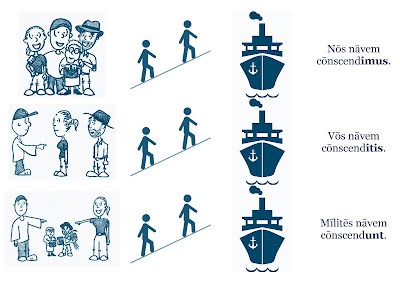Just focus on the number:
|
[1] Nonaginta annos natus est. |
|
|
[2] Undeviginti annos nata est. |
|
|
[3] Romulus cum septem et triginta
regnavisset annos, |
|
|
[4] et cunctus exercitus pugnatorum eius
qui numerati sunt quinquaginta novem milia trecenti |
|
|
[5] et omnis de stirpe eius summa
pugnantium septuaginta quattuor milia sescentorum |
|
|
[6] cunctus exercitus pugnatorum eius qui
numerati sunt triginta duo milia ducenti |
|
|
[7] universi qui in castris Iudae
adnumerati sunt fuerunt centum octoginta sex milia quadringenti |
|
|
[8] cunctus exercitus pugnatorum eius qui
numerati sunt quadraginta milia quingenti |
|
|
[9] pondo sedecim milia septingentos quinquaginta
siclos a tribunis et centurionibus |
|
|
[10] Tali modo cum septem et
septuaginta annos complesset |
|
|
[11] curriculum longum sescentos pedes |
|
|
[12] personae sexaginta quattuor |
|
|
[13] [i] ducenta et quinquaginta
auri, [ii] octingenta pondo argenti in vestibulo curiae posuerunt. |
|
|
|
|
|
[14] huius enim classis [i] mille et
ducentarum navium longarum fuit, quam [ii] duo milia onerariarum
sequebantur, terrestris autem exercitus [iii] septingenta peditum,
equitum [iv] quadringenta milia fuerunt. |
|
|
|
|
|
|
|
|
|
19; 37; 64; 77; 90; 250; 600; 700; 800; 1200; 2000; 16750;
32200; 40500; 59300; 74600; 186400; 400000






